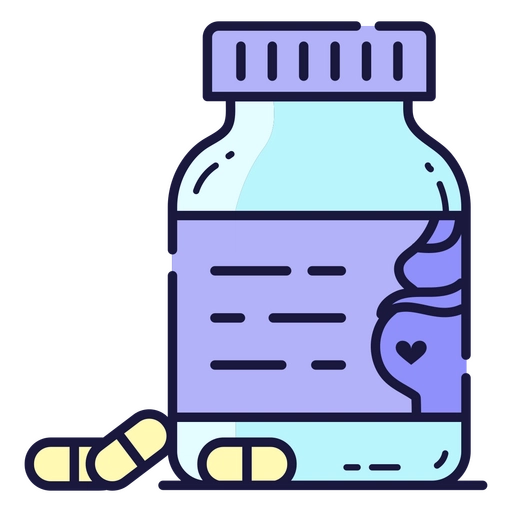
Prenatal Vitamins: Essential Nutrients for a Healthy Pregnancy
Introduction
Prenatal vitamins are specially formulated supplements designed to support the health of both mother and baby during pregnancy. They provide essential nutrients that may be challenging to obtain in sufficient amounts through diet alone. Taking prenatal vitamins ensures that both the mother and the developing fetus receive necessary nutrients for healthy development (American College of Obstetricians and Gynecologists, 2021).
When to Start Taking Prenatal Vitamins
- Before Conception: It’s ideal to begin taking prenatal vitamins at least three months before becoming pregnant. This preparation helps ensure that essential nutrients, like folic acid, are present during the early stages of fetal development (Mayo Clinic, 2022).
- During Pregnancy: Continue taking prenatal vitamins throughout the entire pregnancy to support ongoing fetal growth and maternal health.

Key Nutrients in Prenatal Vitamins
- Folic Acid: Aids in preventing neural tube defects (Centers for Disease Control and Prevention, 2021).
- Iron: Supports the baby’s growth and development.
- Calcium and Vitamin D: Promote the development of the baby’s teeth and bones (American College of Obstetricians and Gynecologists, 2021).
Choosing the Right Prenatal Vitamin
- Consult Your Healthcare Provider: They can recommend a specific brand or formulation based on your individual health needs.
- Check for Essential Nutrients: Ensure the prenatal vitamin contains key nutrients like folic acid, iron, calcium, and vitamin D.
- Consider Additional Nutrients: Some prenatal vitamins include omega-3 fatty acids, which support fetal brain development.
Safety Tips
✅ Do:
- Take as directed: Follow the dosage instructions provided by your healthcare provider or on the supplement label.
- Maintain a balanced diet: Prenatal vitamins supplement a healthy diet; they don’t replace the need for nutritious food.
❌ Don’t:
- Exceed recommended dosages: Taking more than the recommended amount can be harmful.
- Rely solely on supplements: Whole foods provide additional benefits that supplements can’t replicate.
Common Questions & Additional Tips
What if I experience nausea with my prenatal vitamin?
- Try taking it with food or before bed to reduce nausea.
- Consider switching to a different formulation if recommended by your doctor.
References
American College of Obstetricians and Gynecologists. (2021). Nutrition during pregnancy. ACOG. Retrieved from https://www.acog.org/womens-health/faqs/nutrition-during-pregnancy
Centers for Disease Control and Prevention. (2021). Folic acid: Recommendations and guidelines. CDC. Retrieved from https://www.cdc.gov/ncbddd/folicacid/recommendations.html
Mayo Clinic. (2022). Prenatal vitamins: Why they matter, how to choose. Mayo Clinic. Retrieved from https://www.mayoclinic.org/healthy-lifestyle/pregnancy-week-by-week/in-depth/prenatal-vitamins/art-20046945
Visual Aids:
Image 1:
Image 2:
Bottle Of Vitamins For Pregnancy PNG & SVG Design For T-Shirts
To enhance your understanding of prenatal vitamins, here are two informative videos:
English Video:
Spanish Video:
¿Por qué debes tomar vitaminas prenatales?
Este video explica la importancia de las vitaminas prenatales durante el embarazo
Legal Disclaimer: The information provided by our nonprofit is for informational purposes only and not a substitute for professional medical advice, diagnosis, or treatment. Always consult a qualified healthcare provider for medical concerns. We make no guarantees about the accuracy or completeness of the information and are not liable for any decisions made based on it. If you have a medical emergency, call 911 or seek immediate medical care


